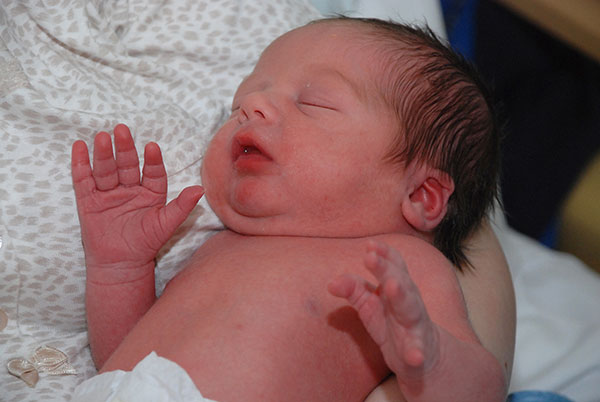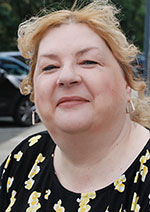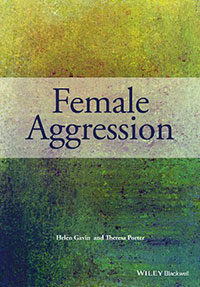Researcher offers a greater understanding of women child killers

Wed, 09 Jul 2014 14:56:00 BST
Dr Helen Gavin’s research challenges the view that women who kill their children are monsters or psychotic
 RESEARCH by the University of Huddersfield’s Dr Helen Gavin (pictured right) will make an impact on psychiatrists, psychologists and other clinicians around the world who are trying to comprehend and reduce child-killing by women.
RESEARCH by the University of Huddersfield’s Dr Helen Gavin (pictured right) will make an impact on psychiatrists, psychologists and other clinicians around the world who are trying to comprehend and reduce child-killing by women.
Also, a new book co-authored by Dr Gavin and due for publication later in 2014 will lead to a greater understanding of the whole field of female aggression. Her published research has already dealt in depth with subjects such as female serial killers.
Dr Gavin, a psychologist who is Director of Graduate Education at the University of Huddersfield’s School of Human and Health Sciences, has been collaborating with Dr Theresa Porter, a clinical psychologist based at a hospital in Connecticut, USA. The two women met at an academic conference and realised that they shared research interests.
This led to an article titled Infanticide and Neonaticide: A Review of 40 Years of Research Literature on Incidence and Causes. It appeared in the globally-respected journal Trauma, Violence and Abuse.
Neonaticide and infanticide
The article is an in-depth analysis of research that has been conducted over the past 40 years into the subject of women who kill their babies – either within 24 hours of birth – neonaticide – or at a later stage – infanticide. The article challenges the widespread view that all such women are either monsters or psychotic or both, and explores the complexities of the issues.
“Historically, women who kill their babies, if discovered, were treated quite punitively, both by society and by the law,” says Dr Gavin. “In recent years it has been realised that there are many more factors involved in killing your own infant than there are in killing another child or an adult. In the past, we have either described these women as bad or mad, but in fact, there are shades in between.”
The article’s authors conclude that there is a still a need for levels of understanding that could help prevent cases of child killing. But possible measures include the education of gynaecologists, obstetricians and birthing unit staff so that they could spot warning signs. Also, the authors argue, “Open conversation with women regarding their and their family’s history of mental illness would assist in identifying some women with predispositions to psychosis.”
Dr Gavin and Dr Porter also put the case for public service messages that would educate the public in recognising warning signs and symptoms.
 Female aggression
Female aggression
Now the article in Trauma, Violence and Abuse has been selected for inclusion in a new edition of Current Perspectives in Forensic Psychology and Criminal Behavior, a leading anthology.
The editor of the anthology, the American expert Professor Anne Bartol, said that the paper “makes a significant contribution to the literature, and we believe students and professors using this supplementary text will find it helpful and informative”.
November 2014 will see the publication of Female Aggression (pictured left), co-authored by Dr Gavin and Dr Porter. It examines the evolution, development and expression of aggression in female animals and humans. The authors examine this phenomenon as an emotional, physical or psychological response to the world in its own right, “not merely as a pale imitation of male behaviour”.
Dr Gavin, whose recent publications also include the wide-ranging text book Criminological and Forensic Psychology, now aims to delve further into the field of female criminality.
“Statistics suggest that female violence is the one form of crime that is growing. Nobody knows why, but there are several hypotheses and I want to investigate those.”







